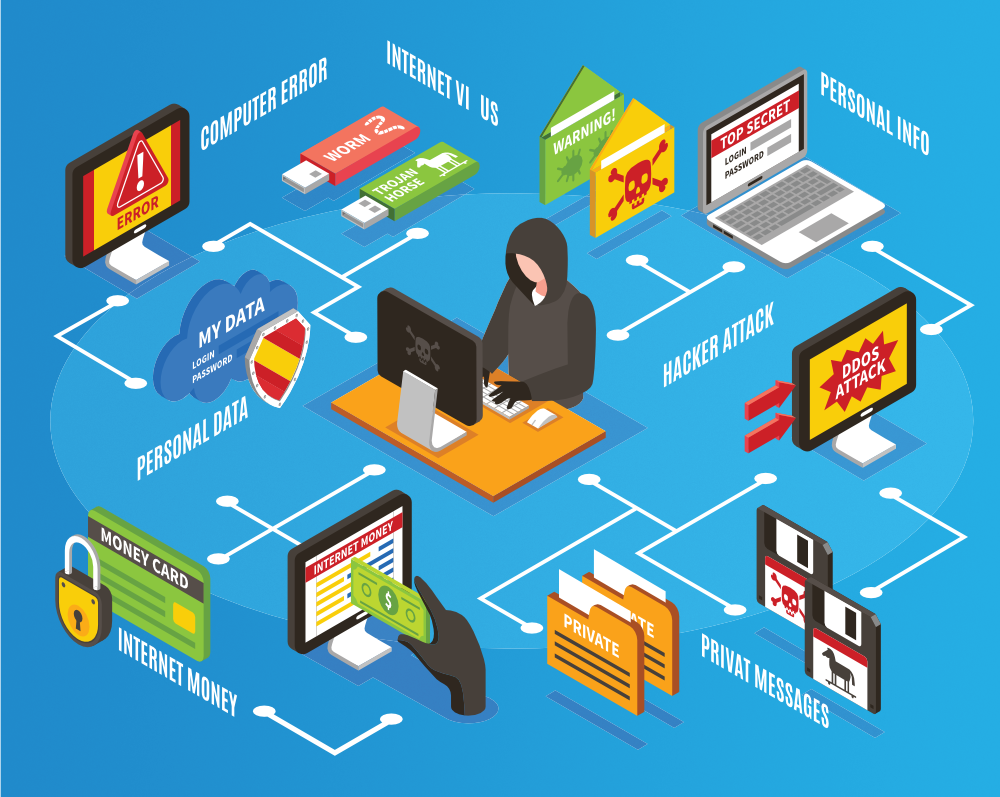The Art of Trust in the Digital Age
By: Arita Talla
Creating trust online is essential for building strong relationships, whether in business or personal interactions.
In today's digital world, students face challenges in building trust online. With most interactions happening virtually, it's harder to establish credibility without face-to-face contact. Cybersecurity threats like scams and data breaches add to concerns about online safety. Misinformation makes it tricky to discern reliable sources. Students also encounter scams and fraudulent activities, leading to skepticism towards unfamiliar websites. Digital literacy disparities widen the trust gap. Despite these hurdles, students can empower themselves by sharpening critical thinking skills and seeking guidance from trusted sources. By being cautious and proactive, they can navigate the online landscape with confidence.
Creating trust online has become an increasingly significant issue due to several factors:
Privacy Issues
Heightened awareness of data privacy issues, fueled by high-profile data breaches and controversies surrounding data collection practices of tech companies, has made users more wary of sharing personal information online. Concerns about data privacy contribute to trust issues in online interactions.
“In 2022, Statista found that security breaches from online payment fraud cost businesses more than $40 billion, according to Statista “ (Thompson 2023)
Some consumers only shop on sites they know are secure. To protect your e-commerce website and customer data, you can use a trusted e-commerce platform, adopt cybersecurity software and train your employees on best practices for cybersecurity and privacy.
Cybersecurity Concerns
With the rise of cyber threats such as data breaches, identity theft, and phishing scams, users are understandably cautious about sharing personal information or engaging in online transactions. Concerns about cybersecurity undermine trust in online platforms and services.
For example, online shoppers face these uncertainties, they only want to buy products from the online vendors they trust. So, building trust in e-commerce is crucial for decreasing fears about online spending. Trust must be at the forefront of everything your business does. According to Julie Thompson, including the following will ensure your company is among those they can trust.
Technology, including websites, security, and payment processing
Product quality, such as multiple photo angles and video
Return policies
Customer reviews
Intelligent package tracking
Social Media Challenges
While social media platforms offer opportunities for connection and engagement, they also present challenges related to trust. Issues such as fake accounts, algorithmic biases, and online harassment can erode trust in social media platforms and their ability to facilitate meaningful interactions.
“Consistency and reliability are essential elements in creating trust within social media communities. Building trust is vital for any brand or individual looking to establish a strong online presence.People need to know that they can rely on you to be consistent in your interactions and content.” (Jones 2023)
Building trust is like solving a puzzle with both logical and emotional pieces.
Let's break it down: First, there's the logical side—things like expertise and credibility. People trust those who seem knowledgeable and skilled, so it's important to show off your know-how in social media communities.
Then there's the emotional part—feelings like empathy and authenticity. Trust grows when people feel a genuine connection with others. Being real and showing you care about your audience can really strengthen that bond. So, when building trust online, remember to combine your smarts with your heart!
Here is how we can start fostering trust in online interactions…
Transparency: Be transparent about who you are, what you do, and your intentions. Provide clear and accurate information about your identity, business, products, and services. Transparency builds credibility and helps establish trust.
When you're transparent online, you're essentially saying, "Hey, here's the real me, flaws and all." This authenticity builds credibility and helps others feel more comfortable interacting with you. Whether you're running a business, managing a social media account, or just connecting with friends, transparency sets the stage for genuine relationships to flourish
Consistency: Consistently deliver on your promises and commitments. Whether it's delivering products on time, providing reliable services, or maintaining communication, consistency demonstrates reliability and builds trust over time.
Think about it: if you follow through on your commitments every time, it shows that you're dependable and trustworthy. On the flip side, inconsistency can breed doubt and uncertainty, undermining the trust you've worked so hard to build.
Security: Prioritize security measures to protect sensitive information and provide a secure environment for online interactions. Implement encryption, secure payment gateways, and robust authentication methods to safeguard user data and transactions.
Social Proof: Showcase positive reviews, testimonials, and endorsements from satisfied customers or clients. Social proof reinforces credibility and reassures new users about the quality and reliability of your products or services.
Social proof is crucial because it provides tangible evidence of a product or service's value and reliability, helping to alleviate uncertainties and doubts potential customers may have. By showcasing the positive experiences and endorsements of others, social proof builds trust and credibility, ultimately influencing purchasing decisions in favor of the brand or offering.
Responsive Communication: Respond promptly to inquiries, concerns, and feedback. Open lines of communication demonstrate attentiveness and a commitment to addressing user needs, which helps build trust and confidence.
Responsive communication is crucial in building trust online because it shows that you value your audience's input and are committed to addressing their needs promptly. It fosters a sense of reliability and accessibility, reassuring users that their concerns are heard and addressed, ultimately strengthening the bond of trust between you and your audience.




